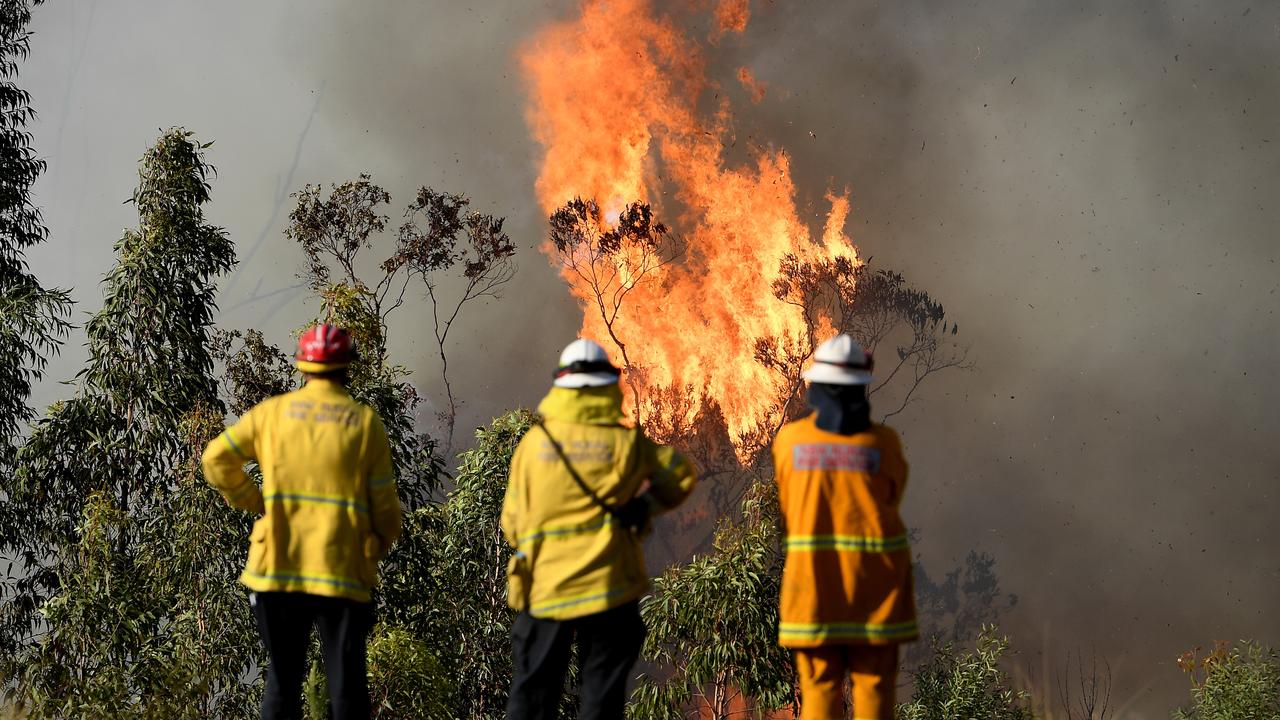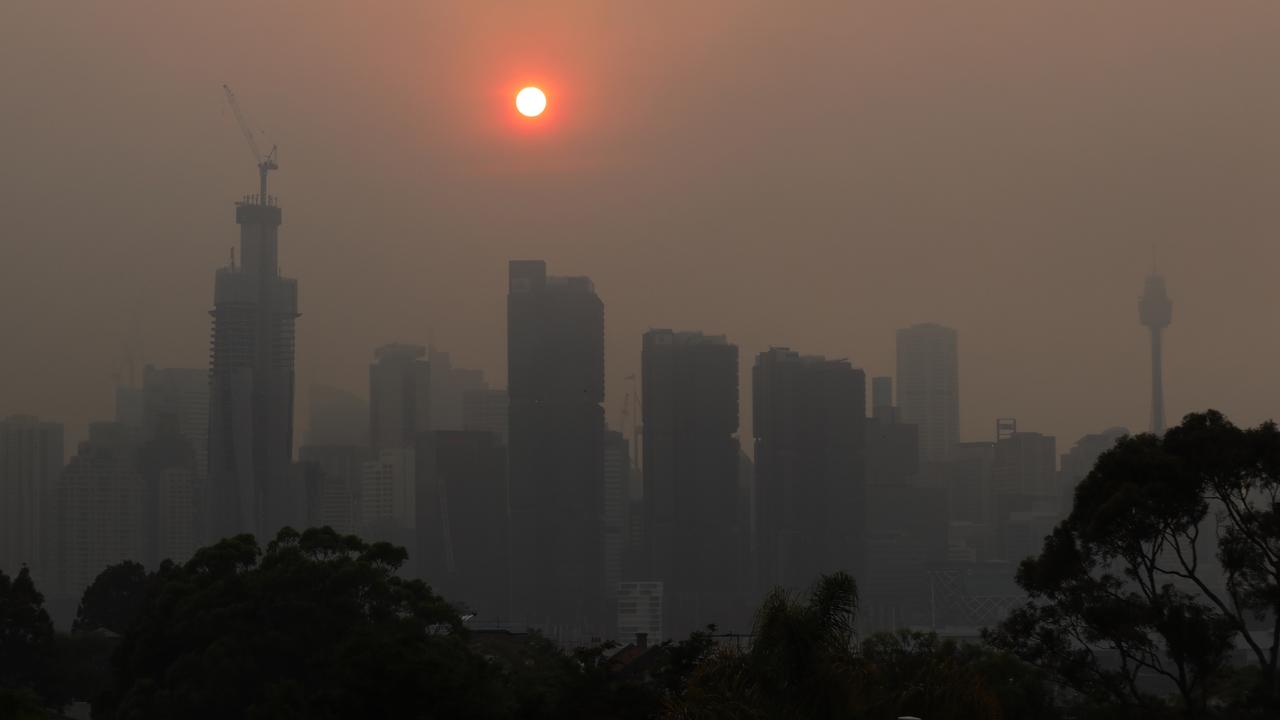Survey shows huge increase in concern about the environment
There’s been a massive jump in the number of Australians who have listed one controversial issue as being the country’s top problem.
Concern about the environment has skyrocketed in Australia with a new report showing a massive increase in people listing it as the country’s top problem.
The Scanlon Foundation Research Institute’s 2019 Mapping Social Cohesion Report has tracked the views of Australians every year since 2011.
Released on Tuesday, the report is produced by Monash University researchers, with more than 3500 Australians surveyed either online or via telephone interviews.
One of the 90 questions people are asked in the survey is to nominate what they think is the most important problem facing Australia today.
Unsurprisingly, economic issues have always topped the list, but concerns about the environment rose dramatically this year, including climate change and water shortages.
Environmental concerns recorded the equal largest annual increase since surveys began, almost doubling from 10 per cent in 2018 to 19 per cent in this year’s phone survey.
Interestingly, the survey was completed in July and August before the massive bushfires that have created devastation, especially in NSW and Queensland.
“These numbers would be much higher now because of the bushfires and climate change being part of that discussion,” report author Professor Andrew Markus told news.com.au.
He believes the issue could become a problem for politicians if they did not act positively to tackle it.
“We see it as quite a significant political issue particularly among young people,” he said. “Almost half of them indicate this is their main issue.”
Environmental issues were prominent in 2011 when 11 per cent of people were concerned, but those worries eased before rising dramatically this year.
Among 15 other issues, the environment is now the second highest, followed by social issues. In equal fourth position are immigration/population growth, and quality of government/politicians.
In good news for Prime Minister Scott Morrison, concern about government/politicians has dropped sharply from 10 per cent last year to 6 per cent this year.
“Our interpretation is that in the aftermath of the election, people are more comfortable,” Prof Markus said. “But they are also more concerned about a new issue, which is now at the top of their minds: climate change and the environment.”
The huge increase in concern about the environment was equal to the rise in people worried about terrorism in 2015. That happened in the aftermath of the Lindt cafe siege in Sydney and other terrorist incidents. Less than 1 per cent of those surveyed had previously nominated terrorism as the country’s top problem, but this increased to 10 per cent, making it the second highest ranked issue of that year.
Concern has since declined and now makes up between 1 per cent and 2 per cent.
Prof Markus said it was also interesting that the number of people sceptical about climate change had declined from 6 per cent in 2011 to 1 per cent this year.
RELATED: Aussies blame climate change for bushfires
RELATED: Worker let go for ‘take time off’ to save property from fires
RELATED: Records show worst bushfires in NSW could be yet to come

Australians who were more likely to be concerned about environmental issues included Greens voters, those aged 18 to 24 years old, those who considered themselves “prosperous” or “very comfortable” financially and those with a bachelor’s degree or higher.
At the other end of the spectrum, One Nation and Liberal/National voters, those whose highest level of education was year 11, working in a trade or apprenticeship, over the age of 75 and residents of Western Australia or South Australia were less likely to be concerned about the environment.
WE ARE LESS HAPPY
Another significant shift in the results has been the shift in strongly positive views.
The proportion of Australians who feel a sense of belonging to a “great extent” has dropped from 74 per cent in 2007 to 63 per cent in 2019.
The number of people identifying as “very happy” has also dropped from 34 per cent in 2007 to 23 per cent.
In the past, more people thought their lives would be “much improved” over the next three or four years. In 2007, 24 per cent thought so, while only 17 per cent believed this in 2019.
Prof Markus said there was still a very high number of people – 90 per cent – who said they felt a “great” or “moderate” sense of belonging in Australia compared with 2 per cent who said “not at all”.
In total, 84 per cent said they had been “very happy” or “happy” over the last year, and 62 per cent were “very optimistic” or “optimistic” about Australia’s future.
“So the big picture is still positive,” Prof Markus said. “But we have to be aware of the trend among that minority, which is becoming more negative.
“It’s still at a small level at this stage, but I think people are worried about where the country will be in 10 years. They are worried about climate change, the labour market, trade and China.”

LESS WORRIED ABOUT IMMIGRATION
There was a slight lowering in concern about the current immigration intake, with 41 per cent of people feeling the intake was “too high” compared with 43 per cent in 2018.
“Consistent with previous years, there is majority agreement that accepting migrants from different countries makes Australia stronger, and more than 80 per cent of respondents agree that multiculturalism has been good for Australia,” Prof Markus said.
However, there are concerns about the impact of immigration on the quality of life.
Negativity around these issues is more pronounced in self-completed online surveys than it is in telephone interviews.
In the self-completed survey, a substantial majority of respondents were concerned about the impact of immigration on overcrowding in cities (70 per cent), house prices (60 per cent), government failure to manage population growth (57 per cent) and its impact on the environment (58 per cent).
There also continues to be a relatively high proportion of respondents who have negative attitude towards Muslims.
Respondents were asked for their attitudes towards four faith groups.
In the self-completed online survey, 6 per cent were negative towards Buddhists, 10 per cent towards Hindus, 14 per cent towards Christians and a much higher 40 per cent towards Muslims




